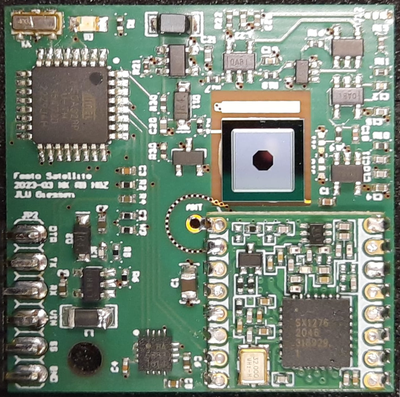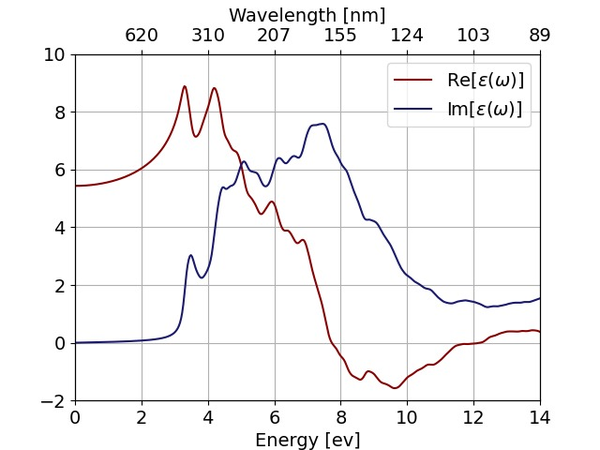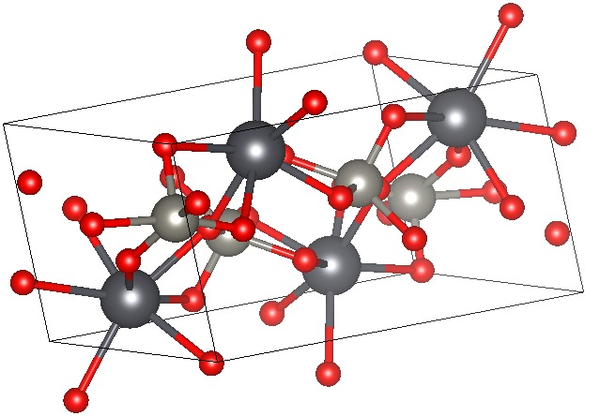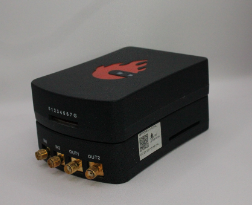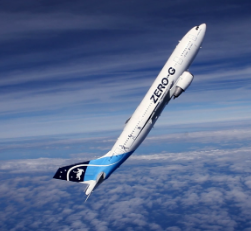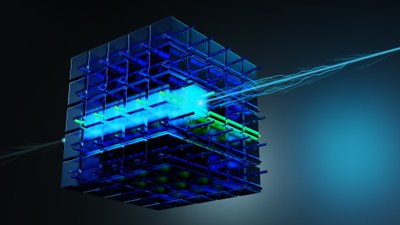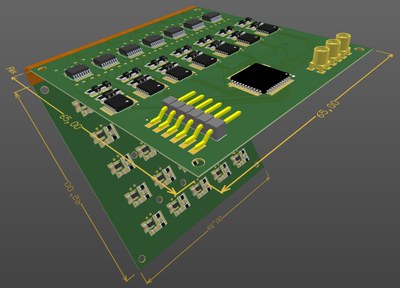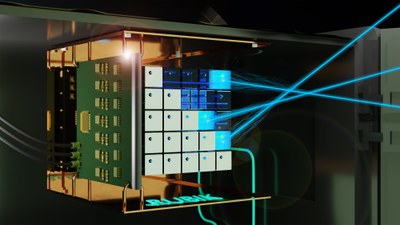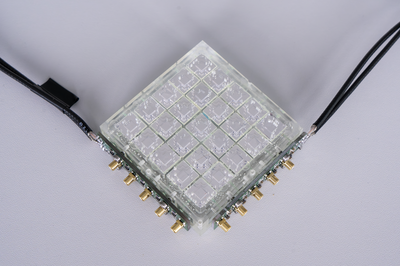Project Announcements
We are constantly looking for new students at any stage in their studies to join our team! These are the currently open projects. If you have questions concerning any of these, don't hesitate to reach out to the contact person.
Calibration and functional test of a dosimeter concept as payload of a femtosatellite
Study Project / Bachelor's Thesis / Advanced Module / Master's Thesis
|
μDose @ FemtoSat dosimeter concept based on a silicon diode as a payload for a femto satellite is to be calibrated with the help of laboratory radiation sources or as part of an irradiation period at the Marburg Ion Therapy Center. In addition, individual functions or ICs (e.g. magnetometer and LoRa) are to be tested on the prototype concept and adjustments made within the readout routine of the ICs with the microntroller. Individual aspects can be dealt with as part of a study project or comprehensively as part of a thesis. In addition, the project can be considered in a larger framework and the completion of the concept for a launch with the satellite concept of AmbaSat Ltd. can be advanced, whereby the focus is more on the further development of the circuit board layout, the optimization of the electronics used (mainly the power supply by the DC/DC converter) and the stress test by temperature and vacuum. Requirements:
Contact Person:
|
|
Theoretical Investigation of Light Transmittance in PWO Crystals under Radiation Damage
Bachelor's Thesis / Advanced Module
|
Lead tungstate (PbWO4 or PWO) is a scintillation material used in various experiments, e.g. CMS at LHC in CERN. A new material (PWO-II) with improved properties was developed for the PANDA experiment at FAIR in Darmstadt. PWO-II is subject of various projects in our working group, e.g. measurements of light transmittance in PWO-II after irradiation with a Co-60 source were done. To to obtain a better understanding of radiation induced damage, we want to do theoretical calculations in the framework of density functional theory (DFT) to calculate the light transmittance in PWO-II with different defects implemented. Prerequisites:
Contact Person
|
|
Literature Research about Neutron Detection
Study Project / Advanced Module
|
As part of the LOEWE research focus ADMIT (Advanced Medical Physics in Imaging an Therapy), research is currently being carried out on various detector prototypes for neutron dosimetry and for measuring neutrons of different energy ranges. In this context, the Brinkmann group is working closely with the Marburg Ion Therapy Center to develop new detector concepts, both for the detection of thermal neutrons and for the measurement of neutrons of different energy ranges. thermal neutrons as well as for the detection of neutrons of higher energies. For this purpose, an overview of the efficiency and functionality of different detector types is necessary. The aim of the project is to provide a comprehensive overview of detector concepts and detector development in neutron dosimetry and to the prototype development, as well as other projects, by researching in journals and journals and technical journals. Prerequisites:
Contact Person
|
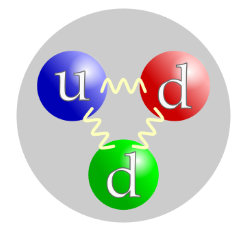 |
Red Pitaya FPGA Programming for a Parabolic Flight
Study Project / Bachelor's Thesis
|
For a project to measure cosmic rays, a detector is being developed that will be used to measure both cosmic muons and neutrons from secondary cosmic rays. In this context, the detector prototype will fly on several parabolic flights in Bordeaux as a parasitic payload and will also be used for long-range flights. As an addition to the current Raspberry Pi-based data processing, the detector is to be read out and new functionalities developed using an FPGA. Prerequisites:
Contact Person
|
|
FPGA Programming for RUBIK @ ROMEO
Advanced Module / Specialization Module / Master's Thesis
|
As part of the particle detector concept RUBIK @ ROMEO (satellite mission of the IRS Stuttgart), consisting of 125 segmented scintillation cubes and specially developed readout electronics, the measurement routine is to be extended and new functionalities developed using a field programmable gate array (FPGA). The aim is to expand the existing basic signal processing and communication via UART and to query and process additional functionalities such as the recording of status messages, statistics of individual measurement channels (count rates etc.) and parameters of individual electronic components (e.g. voltage thresholds of DACs). Prerequisites:
Contact Person
|
|
Radiation Tests for RUBIK @ ROMEO
Study Project / Bachelor's Thesis
|
As part of the particle detector concept RUBIK @ ROMEO (satellite mission of the IRS Stuttgart), consisting of 125 segmented scintillation cubes and specially developed readout electronics, it is planned to carry out radiation tests. The aim is to evaluate the radiation compatibility of the overall concept and selected components. This could also involve a simulative comparison based on the ESA's SPENVIS software (based on Geant4). Prerequisites:
Contact Person
|
|
Irradiation of active medical implants
Advanced Module / Specialization Module / Master's Thesis
|
Exposure to radiation can lead to malfunctions in active, implanted medical devices. Prerequisites:
Contact Person
|
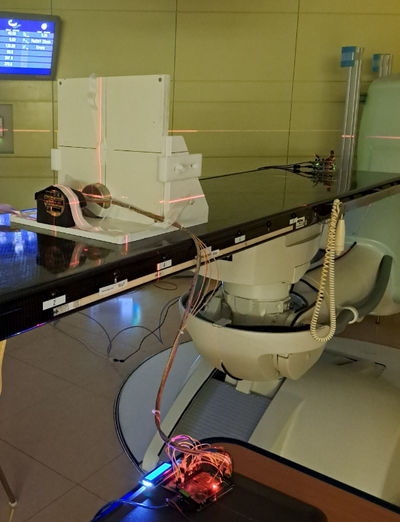 |

